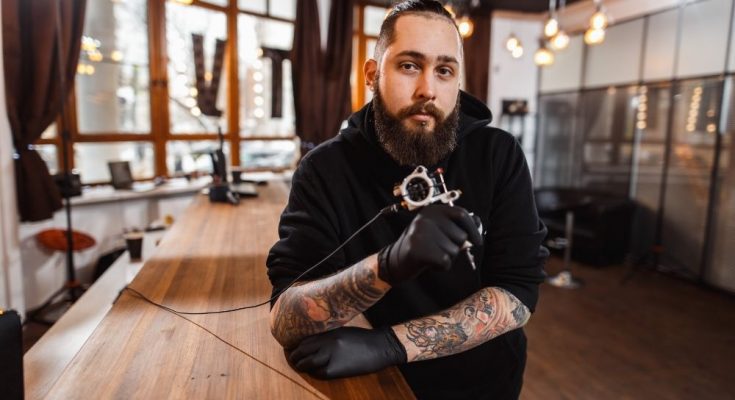The tattoo industry is a prime example of paving your way. These businesses, run by artists for artists, are some of the best for embracing your individuality and showcasing it for everyone to admire. However, for these professionals to find success, it’s vital to have a diverse set of resources at their disposal. So whether you’re looking to jump into this career, or want to learn more about tattooing, make sure you know about the essential tools and supplies for tattoo artists.
Art and Stencil Supplies
Before a professional tattoo artist can begin a project, it’s crucial to have a clear idea of what their customer wants. That’s why individuals must have a consultation before their tattoo appointment. During these meetings, the artist sketches out the customer’s idea and creates a stencil to follow with their tattoo machine later on. As such, all professionals must have standard art and stenciling supplies, such as pencils, pens, and tracing paper.
Ink and Suitable Ink Cups
Tattoo artists should also always have the appropriate type of ink on-hand. After all, a tattoo’s quality depends on the ink you use. Using the wrong kind of ink—such as semi-permanent instead of permanent, for example—can diminish the final product and leave a customer unsatisfied. Because of this, having several types of ink in different colors available is key. You’ll want to make sure you use the right ink cups as well, as these containers offer the best access to the ink while reducing your risk of spilling them.
A Tattoo Machine With Needles
Then, of course, tattoo artists need their designated tattoo machine and needles. These devices administer the ink by injecting small amounts of it into the skin at a time. This creates a lasting image on the surface and ensures the pattern lasts for several years to come. Like hospital needles, these instruments are fine enough to prick the skin but not enough to create larger wounds.
Sanitary Products
Some essential tools and supplies for tattoo artists are sanitization products. While the needle doesn’t fully penetrate the skin, it still sinks through the top few layers. This makes these areas susceptible to germs and bacteria, increasing the health risk involved. So tattoo artists must always sanitize their equipment and the client’s skin before starting the project. Some of the items they use include sanitary wipes, bandages, and an autoclave.



